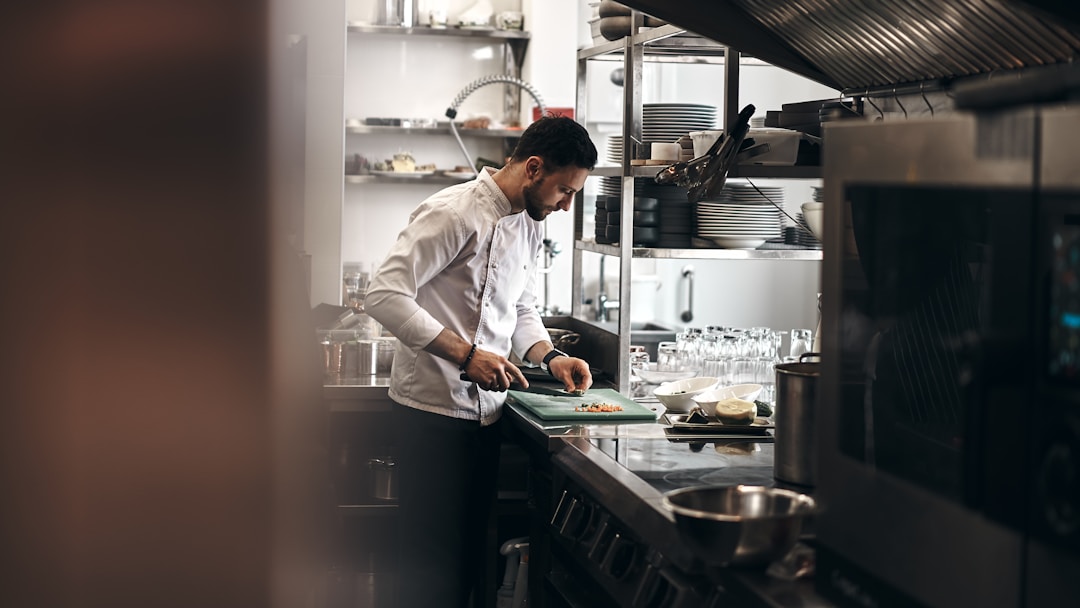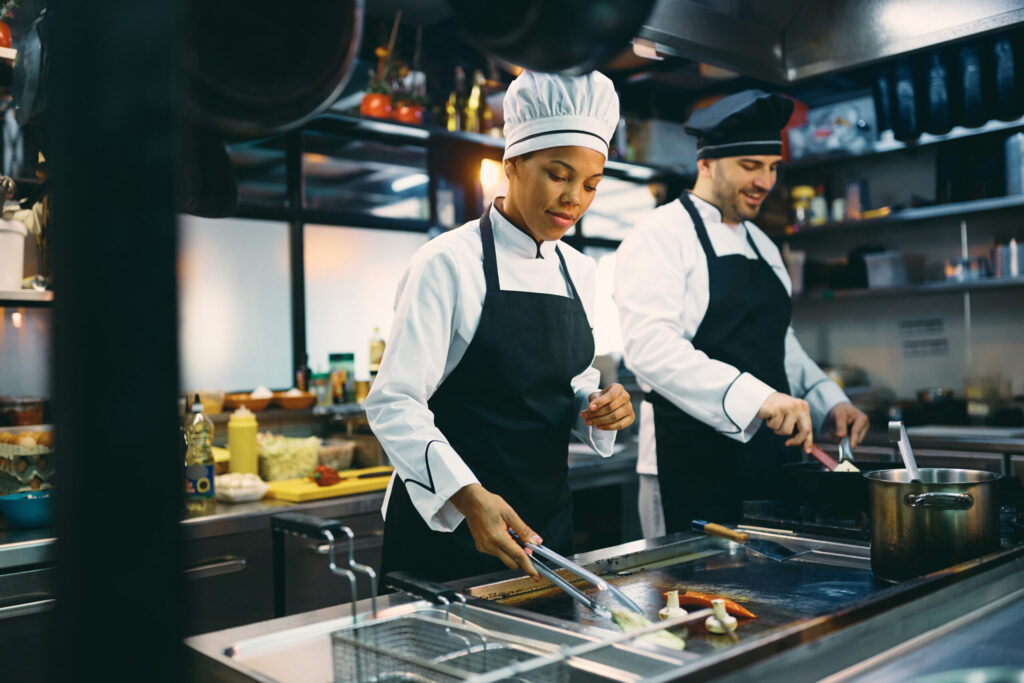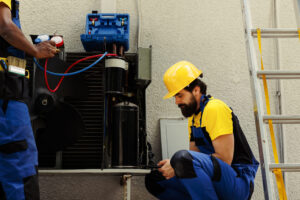Running a restaurant is an exciting endeavor but it requires more than just passion for food. It takes sharp business acumen, customer service skills, managerial expertise, knowledge of food safety regulations, and more. With a plethora of responsibilities from staff recruitment to menu planning, from budgeting to equipment purchase, every detail plays a role in the restaurant’s success. In this article, we will delve deep into the complexities of what it takes to run a restaurant, outlining key aspects you need to consider. So, keep reading to arm yourself with the knowledge needed to succeed in this challenging yet immensely rewarding industry.
Investing in the Right Equipment

Purchasing commercial kitchen equipment is a substantial upfront investment when starting a restaurant. Equipment must be efficient, sturdy, flexible, and abide by food safety regulations. Key equipment includes ranges, ovens, refrigeration units, preparation counters, and other specialized appliances depending on the nature of your menu. While the initial cost of quality equipment can be high, it often pays off in the long run through durability, efficiency, and minimizing repair costs.
To meet the beverage needs of your customers, investing in commercial ice machines is a priority. Whether you need ice for drinks, food storage, or to preserve the freshness of seafood and produce a reliable ice machine can keep up with your demand. By having a constant supply of ice readily available, you can avoid running out during peak hours or having to make emergency ice runs, which can disrupt the smooth operation of your restaurant. A commercial ice maker also allows you to maintain high hygiene standards. Hygiene is paramount in the food service industry, and using ice from questionable sources can pose health risks.
Besides this, regular servicing and maintenance of the equipment ensure their longevity and reduces the chances of sudden downtime due to equipment malfunction. There are also some notable trends in the food service equipment industry. Energy-efficient equipment, automated devices, IoT-incorporated appliances, and multifunctional compact designs are getting popular in commercial kitchens. Suppliers continuously innovate to meet these evolving demands. However, in choosing equipment, the relevance to your specific needs should always be your guide. Just be sure to purchase your equipment from a quality retailer.
Food Menu and Sourcing
The food menu represents the heart of your restaurant. It should be an embodiment of your culinary ethos, and contribute to setting the ambiance. When crafting your menu, balance creative flair with practical considerations, such as cost, preparation time, and ingredient availability. Ensuring both quality and efficiency in the kitchen is essential in the competitive restaurant industry. The source of your ingredients can significantly impact the quality of your dishes. Local procurement ensures access to fresh and seasonal ingredients, contributing to the taste and richness of the dishes.
However, certain dishes might require ingredients that need to be imported or sourced from distant regions. In such cases, efficient supply chain management becomes critical. You will need to ensure a balance between quality and operational costs. To ensure the quality and reliability of supplies, building strong relationships with suppliers is fundamental. You may go for bulk purchases or long-term contracts to get better prices. Equally valuable is keeping a keen eye on daily kitchen proceedings to identify waste and overstocking to ensure your kitchen is cost-effective.
Recruiting and Training Staff

For a restaurant to operate smoothly, a skilled and reliable team is vital. Recruiting the right staff, from kitchen crew and waitstaff to managers, is a part of your restaurant’s success. Each position requires distinct skills and qualities which must be considered during the recruitment process. Hiring is just the beginning. Continuous training and professional development activities are needed to maintain a high standard of service. Regular culinary workshops, serving etiquette sessions, soft skills training, and health and hygiene awareness programs to upgrade the skills of your staff.
Furthermore, creating a healthy and positive work environment encourages team unity and increases staff retention. Also, there should be a clear communication flow between the different levels of staff. Regular team meetings, providing feedback, and addressing grievances ensure smooth operations. Remember, a motivated team can elevate customer satisfaction and subsequently, the success of your restaurant. Even the seating layout of your restaurant can have an effect on your environment.
Marketing and Customer Service
In today’s digital age, an effective marketing strategy is an integral part of running a successful restaurant. Traditional methods of publicity such as local advertising, flyers, and print ads have given way to online reviews, social media advertisements, and email marketing campaigns. A strong online presence can attract more customers and build your restaurant’s brand. Despite the growing importance of digital marketing, word-of-mouth remains one of the most influential marketing tools.
Providing excellent customer service can make your customers your best advocates. Therefore, investing in staff training to enhance customer interactions and improve service quality is crucial. Digital marketing and reputation management are major aspects of restaurant marketing today. Responding promptly to online reviews, feedback and complaints demonstrates your commitment to customer satisfaction and can greatly enhance your restaurant’s image.
Staying Compliant with Regulations

All aspects of a restaurant’s operation are subject to laws and regulations. From food safety to building codes, from employee rights to alcohol licensing – ignoring any of them could lead to severe legal and financial repercussions. Therefore, understanding and adhering to all relevant regulations is important to run a restaurant business. For example, compliance with health and safety regulations is paramount in the restaurant industry.
Regular inspections ensure that the restaurant operates under compliant conditions, and those breach penalties can be hefty. Similarly, obtaining and maintaining licenses for conducting certain operations, like serving alcohol, should be considered while planning the restaurant. Labor laws matter too! Ensuring fair wages, providing necessary benefits, complying with working hours limitations, and providing safe and healthy working conditions are some of the areas to consider in this regard. Non-compliance can result in substantial fines and lawsuits, damaging your restaurant’s reputation and bottom line.
Financial Management

The financial health of your restaurant is dependent on your ability to keep costs under control while maximizing revenues. Managing finances include budgeting for expenses, tracking income, maintaining insurance, and paying taxes. An accurate financial reporting system enables you to monitor income, expenses, and profitability, helping in strategic decision-making. Maintaining a cash buffer for unexpected expenses is always a good practice. This could cover surprise costs and see your business through tough times.
Beyond that, restaurant owners should regularly review pricing strategies considering factors like rising food costs, competitive pricing, and customers’ willingness to pay. Investing in accounting software or hiring a professional accounting service could be beneficial. This can assist with precision in bookkeeping, managing payroll, and staying compliant with tax laws. Regardless of how you choose to manage your restaurant’s finances, a sound knowledge of basic accounting principles is indispensable.
As this article demonstrates, running a restaurant successfully involves a mix of creativity, careful planning, and stringent management. It requires an understanding of your target audience, a keen eye for detail, and the ability to adapt to industry trends without compromising your unique restaurant concept. A restaurant owner must champion product quality, create a positive work environment, invest wisely, and stay compliant while constantly engaging with customers. It’s a challenging role but equally satisfying. With the right knowledge, skills, and attitude, you are well on your way to establishing a thriving restaurant business.








